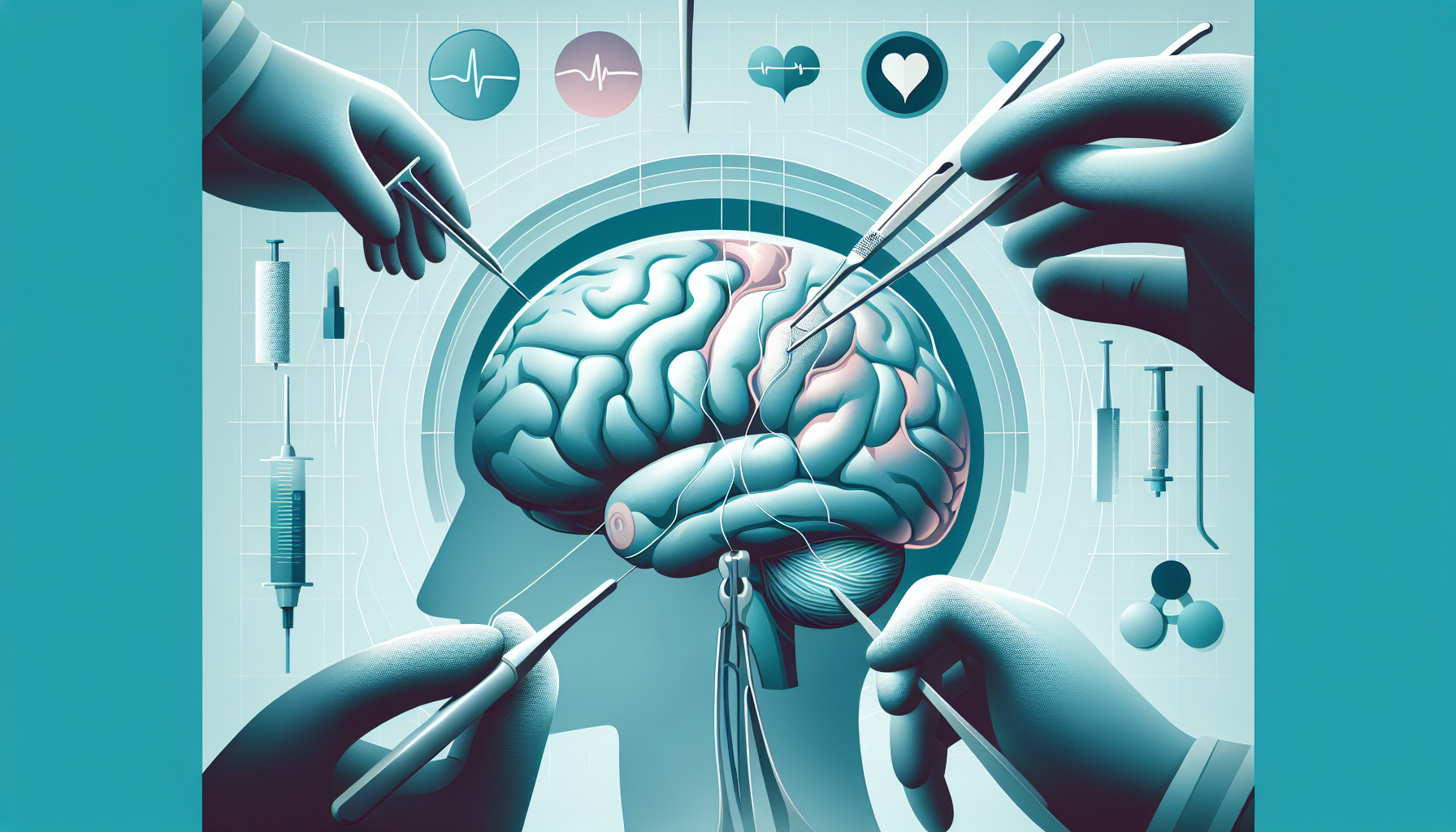Our Summary
This research paper sought to better understand the frequency and causes of headaches after skull surgery. The study included more than 300 patients who underwent a specific type of skull surgery at six different institutions over five years. Almost half of these patients experienced headaches after their surgery. The study found that certain types of surgery and conditions like facial spasms increased the risk of these post-surgery headaches. In most instances, these headaches went away within a month, but some patients had long-term headaches. The study suggests that to prevent these headaches, the specific surgical method and how the skull is closed should be tailored for each patient. It also recommends considering a different type of skull surgery.
FAQs
- What was the main focus of this research study about skull surgery?
- What factors were found to increase the risk of post-surgery headaches?
- What strategies did the study suggest to prevent headaches after skull surgery?
Doctor’s Tip
A doctor may advise a patient undergoing a craniotomy to be aware that headaches are a common side effect post-surgery. They may recommend monitoring the intensity and frequency of headaches, taking prescribed pain medication as needed, and following up with the medical team if headaches persist beyond a month. Additionally, the doctor may stress the importance of proper wound care and rest during the recovery period to minimize the risk of complications.
Suitable For
Patients who undergo craniotomy are typically those with conditions such as brain tumors, aneurysms, traumatic brain injury, arteriovenous malformations, epilepsy, or other neurological disorders that require surgical intervention. The decision to recommend a craniotomy is based on the specific diagnosis, location of the pathology, and the overall health and medical history of the patient. It is important for the patient to undergo a thorough evaluation by a neurosurgeon to determine if a craniotomy is the appropriate treatment option for their condition.
Timeline
Before a craniotomy:
- Patient is diagnosed with a brain tumor, aneurysm, or other condition that requires surgical intervention
- Patient undergoes pre-operative evaluation and medical tests to assess their overall health and determine the best course of treatment
- Patient meets with their surgical team to discuss the procedure, potential risks, and post-operative care
- Patient may undergo imaging tests such as MRI or CT scans to help the surgical team plan the procedure
- Patient may need to stop taking certain medications or make other lifestyle changes in preparation for surgery
After a craniotomy:
- Patient is admitted to the hospital for the surgery and is placed under general anesthesia
- Surgeon makes an incision in the scalp, removes a piece of the skull, and operates on the brain
- Patient wakes up in the recovery room and is closely monitored for any complications
- Patient may experience pain, swelling, and bruising at the surgical site
- Patient may need to stay in the hospital for several days for observation and recovery
- Patient may need physical therapy or other rehabilitation services to regain strength and function
- Patient follows up with their surgical team for post-operative appointments and monitoring of their condition
- Patient may experience headaches, fatigue, and other side effects of the surgery, which may improve over time with proper care and follow-up
Overall, the timeline of a patient’s experience before and after a craniotomy involves careful preparation, skilled surgical intervention, and comprehensive post-operative care to ensure the best possible outcome for the patient.
What to Ask Your Doctor
Some questions a patient should ask their doctor about craniotomy include:
- What specific type of skull surgery will I be undergoing?
- What are the risks and potential complications associated with this type of surgery, including the risk of post-surgery headaches?
- What factors could increase my risk of experiencing headaches after the surgery?
- How long do post-surgery headaches typically last, and what can be done to manage or alleviate them?
- Are there alternative surgical methods or techniques that could reduce the risk of post-surgery headaches?
- How will the skull be closed during the surgery, and how might this impact my risk of headaches?
- Will I need any additional follow-up or monitoring for headaches after the surgery?
- What can I do to help prevent or minimize the risk of post-surgery headaches during my recovery period?
- Are there any specific medications or treatments that can help with post-surgery headaches if they occur?
- How will my overall recovery and long-term prognosis be affected by the potential for post-surgery headaches?
Reference
Authors: Shibata Y, Hatayama T, Matsuda M, Yamazaki T, Komatsu Y, Endo K, Akutsu H. Journal: J Perioper Pract. 2023 Jul-Aug;33(7-8):233-238. doi: 10.1177/17504589221076368. Epub 2022 Feb 22. PMID: 35191330
